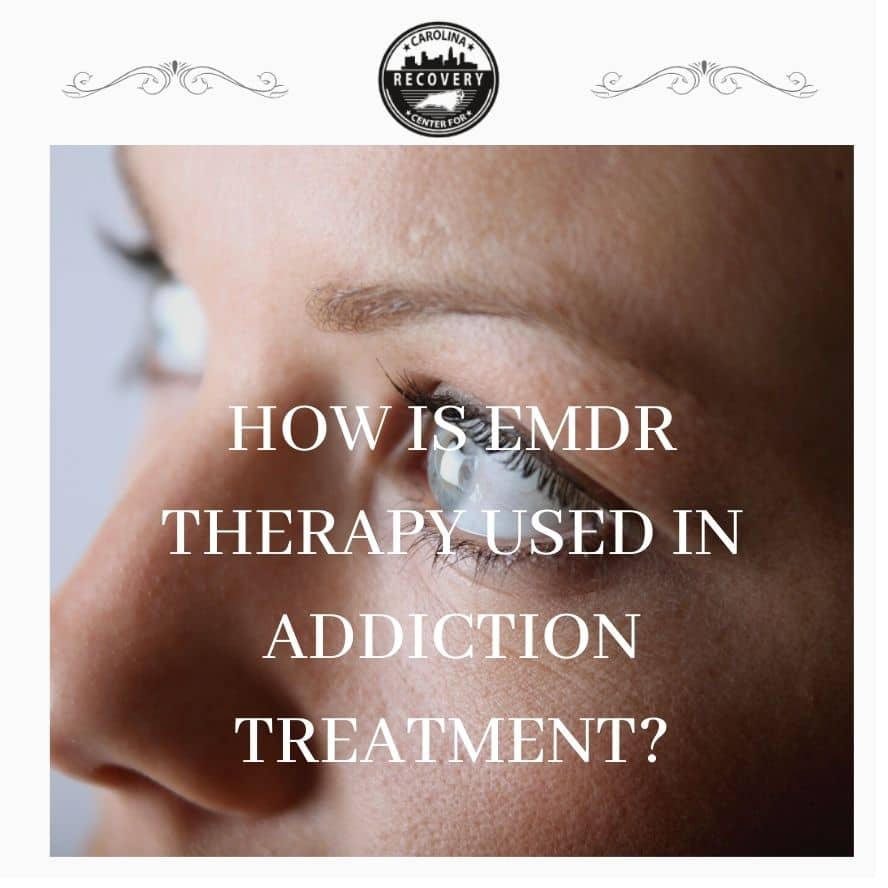How is EMDR Therapy Used in Addiction Treatment?

Medically Verified: 2/1/24
Medical Reviewer
Chief Editor

All of the information on this page has been reviewed and verified by a certified addiction professional.
Living with addiction can harm your mental and physical health, cause strained relationships, and lead to legal and financial trouble. Many people with an addiction to drugs and alcohol require addiction treatment to overcome this condition.
Addiction is a complex condition with roots in a person’s biology, environment, genetics, and other personal aspects. It is not sufficient to treat only the physical aspects of addiction. For someone to recover from addiction, they must go through a comprehensive treatment program that addresses all aspects of this condition.
One type of trauma therapy called Eye Movement Desensitization and Reprocessing (EMDR) has become popular in addiction treatment. Since its development in 1989, over 100,000 therapists have begun to use EMDR therapy in addiction treatment to help people overcome the anxiety, stress, and trauma that contribute to their substance abuse.
Learning about EMDR therapy for trauma may help you prepare for treatment and help you make informed decisions about your care.
What is EMDR Therapy for Trauma?
Eye Movement Desensitization and Reprocessing (EMDR) therapy has reported benefits for healing trauma. EMDR is believed to work by helping people process their emotions about a traumatic event differently. By changing the way the brain processes trauma, EMDR may help lower the intensity of a person’s feelings around the event.[1]
Therapists use EMDR in various settings, including addiction treatment programs. People usually participate in eight therapy sessions spread out over several weeks. The therapist guides the patient in a series of sporadic eye movements while the patient recalls a traumatic memory. Some people believe this can help a person’s brain store the memory differently and process the emotions around the event in a new, healthy way.
Some of the things practitioners and patients enjoy about EMDR therapy include:[2]
- Effectiveness in treating PTSD
- A limited number of treatments
- No medications needed–no side effects
- Typically costs less than other types of therapy
- Covered by many insurance plans
This type of treatment can be effective but may not be for everyone. Some of the reported negative aspects of EMDR include:
- Eye movements feel awkward or uncomfortable
- Emotionally painful to recall the trauma
- Fatigue is common after treatment sessions
Currently, there is not enough research on the long-term effectiveness of EMDR. However, many people report significant improvements in their anxiety, stress levels, and perception of trauma. These results have prompted thousands of therapists to embrace this type of therapy and use it to treat people in various settings.
Understanding the Role of Trauma in Addiction
Addiction is not simply a physical addiction. A person’s biology, environment, genetics, and history can contribute to their likelihood of developing an addiction to drugs or alcohol. One factor that can significantly raise a person’s risk of developing substance abuse or addiction is experiencing trauma.
Trauma is an emotional response to a terrifying event. Traumatic events can include:
- Accidents
- Natural disasters
- Assault
- Abuse
- Medical emergencies
- The death of a loved one
- Living in a war zone
Any event that produces intense fear can be traumatic. When people live through a traumatic event, they may develop a condition called post-traumatic stress disorder (PTSD). PTSD is a lengthy emotional response to a traumatic event that can last for months or years. It is characterized by flashbacks, nightmares, hypervigilance, and avoidance of anything related to the event. About 3.6% of the U.S. population–or 9 million people–suffer from PTSD.[3]
Without treatment, people may seek unhealthy ways to numb the intense stress, fear, depression, and anxiety common in PTSD. Some people rely on drugs or alcohol to escape their PTSD symptoms–this is called “self-medicating”. Using substances for a prolonged period puts people at increased risk of developing an addiction.
The Benefits of Using EMDR Therapy in Addiction Treatment
Mental health specialists are currently exploring exactly why EMDR therapy is effective in treating trauma. What is evident is that EMDR therapy seems to be highly effective at helping people manage stress and heal trauma.
Some of the benefits of using EMDR in addiction treatment include:
- It can be offered in a variety of settings
- Effective in helping people process trauma
- Lowers stress and anxiety
- Requires little to no equipment
- A good option for people who can’t/prefer not to take medications
Researchers are exploring another benefit of offering EMDR in addiction treatment. Many people in treatment find that EMDR helps with “addiction memories”. Addiction memories may include their loss of control over their drug use or remembering the drug’s effects. By lowering the intensity of these memories, people may have a better chance of long-term recovery.
How EMDR Therapy for Trauma is Used in Addiction Treatment
Many therapists at addiction treatment facilities have begun to offer EMDR to complement their patients’ treatment plans. EMDR can be used alongside other evidence-based treatment activities, such as:
- Individual therapy
- Education
- Group therapy
- Family therapy
- Medications
- Mental health treatments
As evidence builds to support the effectiveness of EMDR in treating trauma and preventing relapse, more treatment facilities have given this type of therapy a central role in their patient’s treatment plans.
Get Help Now
The therapies at Carolina Center for Recovery embrace a trauma-informed care approach that can effectively help patients move past trauma. If you or someone you love requires substance abuse treatment, reach out to the Carolina Center for Recovery specialists today.
References:

